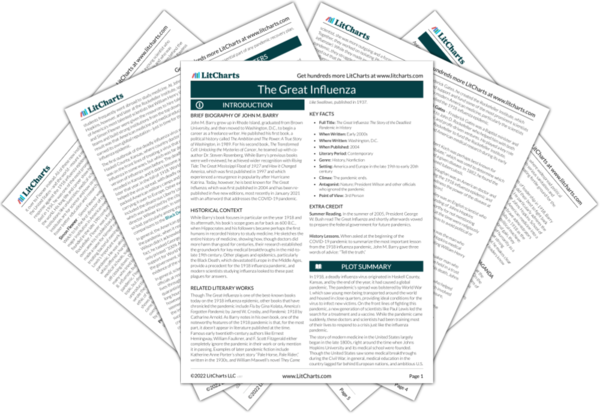Again, Barry does not directly criticize Wilson’s actions, but he presents them in a way that makes them seem potentially callous and cynical. The fact that World War I was so close to ending suggests that perhaps American soldiers weren’t urgently needed at this point and that soldiers’ spread of the virus caused suffering that could have been avoided. This passage highlights the dangers of nationalism and of inflexible leadership.
